Event Round-Ups

The first two months of the year is a busy season for edtech events. From the TCEA to BETT to FETC, Tech&Learning was on the scene. Here are some of the best bits.
Top 10 FETC 2014 Takeaways
By Jodi Samsinak
1 Every student has the right to ask, “Why are we doing this?” and “How does this relate to my future?” If we can’t answer these critical questions, it’s time to take a step back.
2 Nothing lasts forever, except your social media posts. Keep teaching digital citizenship.
3 Every teacher needs to leave a digital footprint. Our students should have access to our content 24/7. This isn’t only for students, but for our stakeholders as well.
4 Collaboration is critical. We’re no longer working in an environment where we can choose to work alone.
Tools and ideas to transform education. Sign up below.
5 Social media is not a bad word. In the past, education and social media have not blended. At FETC, presenters showed us that they can and must go hand in hand.
6 Social media is great, but it’s also great to turn it off. Wherever you are, be present. Set a time limit for yourself and your students.
7 Kids aren’t just texting anymore. They’re taking pictures…in your class! So why not let them take pictures and incorporate apps like Instagram into your curriculum? Before they write about the content, ask them to storyboard it with digital imagery.
8 Our schools are still the place where kids use technology the least. If we’re preparing them for a tech future, then we better be preparing them by using the tools that they’ll need for success in their future.
9 It’s not what I learned at FETC (or at any conference), it’s who I connected with. Establishing, supporting, and growing your PLN is important.
10 No app can replace a great teacher! Even at FETC, where I was surrounded by Google Glass, Tobii eye mobile (eye tracking mouse), sketchnoting, and other amazing apps, the overwhelming takeaway is that no technology will ever replace us.
Jodi Samsinak, an IB English teacher at Ozark High School in Ozark, Missouri.
T&L Celebrates Awards of Excellence at TCEA
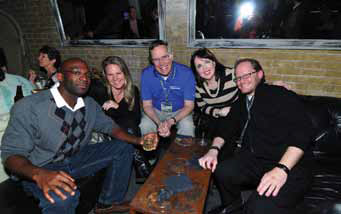
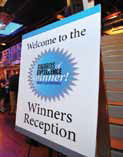
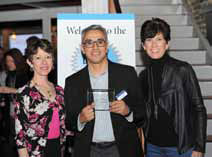
A fine time was had by all at Tech&Learning’s Awards of Excellence reception, which is held every year in conjunction with the Texas Computer Education Association’s conference in Austin. More than 70 education technology products were recognized as winners. Honored software, hardware, network, and Web gear included innovative applications that break new ground as well as those that added significant enhancements to proven education tools. A panel of more than 30 educators, who tested more than 150 entries, chose the winners. We look forward to even more new great edtech coming out in 2014.
Center of Excellence in Learning Opens at Science Leadership Academy
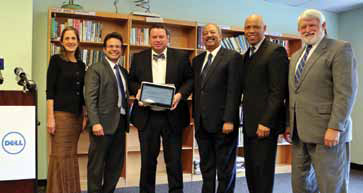
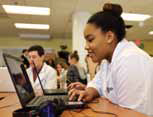
In January, Science Leadership Academy (SLA) and The Franklin Institute in Philadelphia announced a partnership with Dell that will make the school the first in the nation to deploy the Dell Chromebook 11 as part of its new “Center of Excellence in Learning.” This Center will go beyond a 1:1 Chromebook deployment. Thanks to more than $620,000 in grant money and education technology from Dell, the Center will also enable SLA to share its well-known model of inquiry-based learning with schools around the country through real-time and online professional development opportunities.
“The Center for Excellence at Science Leadership Academy is going to involve a number of different things—not the least of which is that we are moving our 1:1 program to the Dell Chromebook,” says principal Chris Lehmann. “What differentiates this grant is that it not only brings technology to our school, but allows us to create the Center of Excellence. This funding will allow us to invite educators from all over the world to come see what we do. The technology is used in service of our inquiry-driven, project-based curriculum. This is a very specific kind of teaching and learning, and our hope is that this partnership will allow us to reach more educators and bring what we do at SLA to other districts.”
Bett Panel: Measuring What Matters
At the recent BETT show, Tech & Learning decided to take on the topic of “Measuring What Matters: Soft Skills Made Visible” at a Learn Live panel discussion. The panel included T&L U.K. advisor Terry Freedman of www.ictineducation.org, as well as professors, teachers, and consultants from the U.S. and England. The conversation revealed some interesting observations.
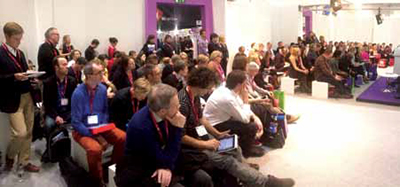
■ Margaret Cox, a professor who has done a lot of research on assessment, said, “It [is] crucial to build in time and opportunities for students to reflect on what they [have] learned. She also said, “It [is] crucial to measure the right things,” and she pointed out that students might have learned something completely different than what you, as the teacher, had intended for them to learn.
■ Paul Hutton, a consultant from England, spoke about the joy of programming, and talked about the excitement that kids experience when learning and technology come together: “Skills like collaboration are not new at all, and our kids must learn how to fail.”
■ Megan Power, a kindergarten teacher from the U.S., said, “Youngsters must be taught to be thinkers, and these so-called ‘soft skills’ must be built into the curriculum.” She also emphasized the need to provide children with opportunities to solve problems rather than slavishly following a textbook.
■ Sacha van Straten, a high school teacher from England, asked: “Why not use a Google Doc to capture a discussion and Google Analytics to track the conversations that take place there? Given that kids are learning socially, does assessment even matter?”
■ Crispin Weston, a consultant from England, also questioned our assessment practices: “Are we measuring performance or capability? Examinations provide only a snapshot at a certain point in time.”
Overall, each member of the panel made excellent points. And while people may not have left with all the answers, at least they knew that they were not the only ones asking the questions!
